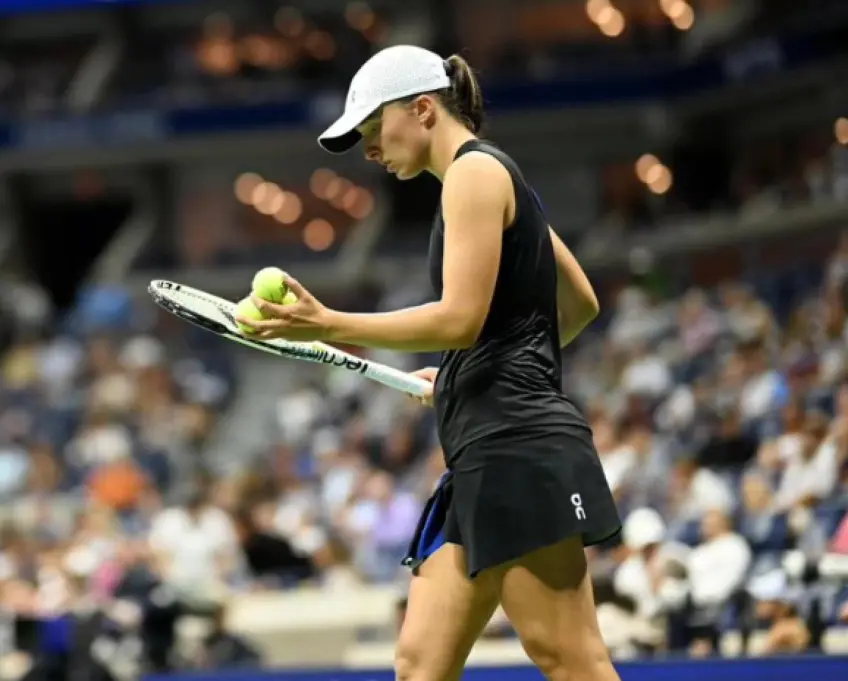
Iga Świątek has been one of the most dominant forces in women’s tennis over the past few years, but recent developments have signaled a turning point in her career. After a successful, yet somewhat tumultuous season that saw her win her third French Open title, Świątek has taken time to make significant changes to her team and approach. The Polish star, who has reigned at the top of the WTA rankings, recognized the need for fresh energy and new perspectives as she embarks on what could be considered the second phase of her already illustrious career.
Świątek’s decision to take a step back and reflect on her career comes after a series of performances that, while still impressive by most standards, revealed vulnerabilities in her game. Her quarterfinal exit at the 2024 Paris Olympics, where she was heavily favored to win gold, was a major disappointment. It became a stark reminder that even the best players in the world need to continuously evolve. Świątek has historically thrived on clay courts, but her struggles on faster surfaces, particularly hard courts, became evident as the season progressed. After her Olympic disappointment, she also fell short at the Cincinnati Masters and was unable to defend her title at the US Open, bowing out in the fourth round.
Her inability to adapt her game during these difficult moments prompted many to question her future dominance, especially with the rise of rival Aryna Sabalenka, who surged ahead by capturing major titles in Cincinnati and at the US Open. Sabalenka’s ascent seemed to further accelerate Świątek’s decision to make changes. At just 23 years old, Świątek still has plenty of time to add to her four Grand Slam titles, but the key to sustained success will be her ability to adjust and innovate in response to the challenges posed by her competitors.
One of the most significant changes Świątek made was parting ways with her long-time coach, Tomasz Wiktorowski, who had been instrumental in her rise to the top. Their partnership, which began in 2021, brought Świątek tremendous success, including all four of her Grand Slam titles and her reign as world number one. Despite these achievements, Świątek felt it was time for a new direction and fresh insights. The decision to end their professional relationship was not made hastily, as both parties have clarified that the split was amicable and carefully considered. In an interview with *Przegląd Sportowy*, Wiktorowski explained, “There have been many speculations and insinuations… but our collaboration ended in respect of both parties. Our priority was always Iga, and no speculation will change that.”
Świątek’s former coach emphasized that this decision wasn’t the result of a singular event or issue, but rather the natural progression of a player looking to take their game to the next level. “It was simply a necessity. We never made sudden and, above all, unconsidered decisions,” Wiktorowski said, reinforcing the idea that Świątek is not only an exceptional player but also one deeply invested in her personal and professional growth.
In the wake of Wiktorowski’s departure, Świątek has announced that renowned coach Wim Fissette will take over as her new coach. Fissette, who has worked with several top players, including Naomi Osaka, Kim Clijsters, and Victoria Azarenka, brings a wealth of experience and a fresh perspective to Świątek’s game. The decision to bring in an outside voice, and one with a proven track record, indicates Świątek’s desire to refine her game beyond her comfort zones, particularly on hard courts and grass, where she has struggled to replicate her clay-court dominance.
This transition comes at a crucial time for Świątek, as she prepares for the WTA Finals in Riyadh, where she will be one of the most anticipated players. Despite the changes to her team and her recent setbacks, Świątek remains one of the top contenders in women’s tennis, and fans and analysts alike are eager to see how she adjusts to her new setup.
Sabalenka, Świątek’s most prominent rival, has acknowledged the importance of their competition in shaping the current landscape of women’s tennis. In a recent interview, Sabalenka reflected on their rivalry, saying, “Having this rivalry with Iga is something big for tennis and something much-needed in women’s tennis. I love seeing her in the draw, and I always enjoy our battles. It’s great for the sport.” With the likes of Elena Rybakina also in the mix, the women’s game is in a particularly exciting phase, and Świątek will need to be at her best to maintain her position at the top.
Renowned tennis analyst Barbara Schett also weighed in on Świątek’s current status, highlighting the areas where the Polish player still has room for growth. “Iga Świątek is the number one in the world, but she still wants to develop her game outside of clay, especially on grass and hard courts. She hasn’t really done that in the last two years. I was very disappointed by how she played at Wimbledon and the US Open. She seemed so one-dimensional and couldn’t adapt tactically when needed,” Schett remarked. However, Schett also believes that Świątek has the potential to evolve. “She can definitely develop her game even more and learn when to defend and when to move forward. I’m not surprised she’s looking for someone with a fresh perspective.”
As Świątek embarks on this next phase of her career, the world will be watching closely to see how she navigates these changes. With a new coach in Fissette and a renewed focus on improving her performance on different surfaces, the Polish star is preparing herself for the long haul. While the competition is fierce, and Sabalenka is currently in top form, Świątek’s ability to adapt and grow will be key to her sustained success. The WTA Finals could mark the beginning of a new chapter for Świątek, one that sees her redefine her game and reassert her dominance on the global stage.
Leave a Reply